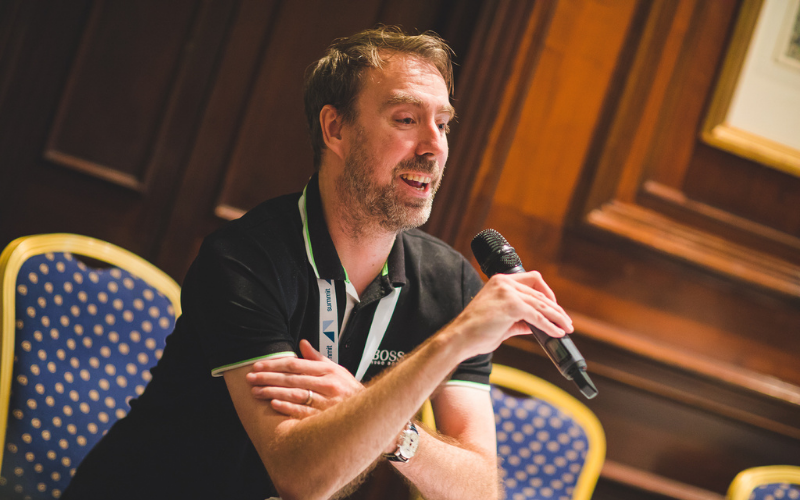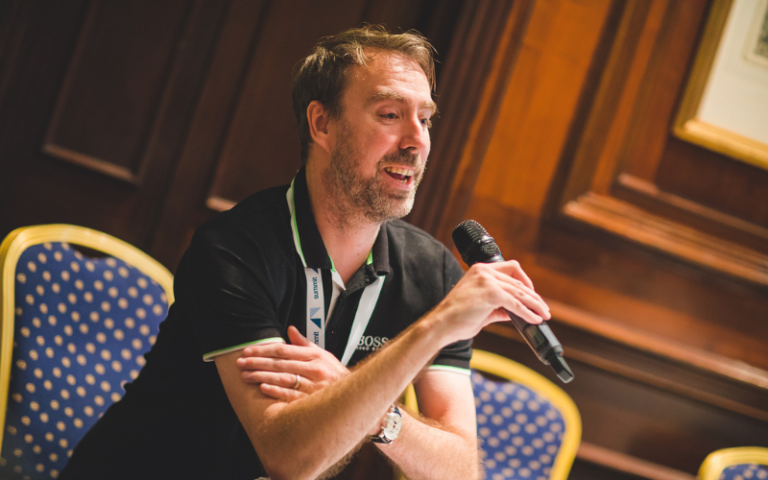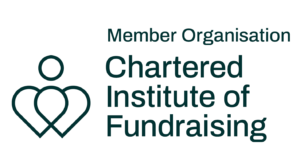Article written by Jon Powton, Foster Carer
Feeling relevant in a world where being different can feel like a crime is never an easy thing. Wearing the badge of disability can leave a sour taste in your mouth, and this was, in my case, amplified for many years by it being a hidden disability.
I have Becker muscular dystrophy, which given the audience needs little explanation. Some call it ‘Duchenne in slow motion’.
Now fortunately or unfortunately depending on your point of view my formative years were largely unaffected by illness and I grew up in a working-class household in a working-class town, experiencing life like a ‘normal kid’, doing the same daft stuff as all my friends, and having the same problems, ambitions and dreams.
I was diagnosed at seventeen and was asymptomatic until about nineteen. I grew up around muscle disease, my grandfather had the same condition and lived with my parents and my siblings and I until his death when I was eleven. It might seem naive now, but it never occurred to anyone that my brother and I might have it as well. Seeing my grandfather die from the complications of muscular dystrophy was a thing that haunted me after my diagnosis; I was seventeen and went into meltdown thinking my life was over. It took a long time for me to come to terms with it, or maybe that’s the wrong word, perhaps accept and adapt to it is a better way to phrase it.
It took a long time for me to come to terms with it, or maybe that’s the wrong word, perhaps accept and adapt to it is a better way to phrase it.
Career in engineering
My early career was as an engineering apprentice, I served my time and fought my way through the complexities of college and higher education, starting just after my diagnosis. I was as you can imagine, a tough journey, but I made it through and for a decade had a very successful and diverse career. Right up until my ever-growing disability got in the way, and through no fault of my own was inevitably pushed out the door. This was my first taste of the attitudinal prejudices and discrimination that society carries towards disability, and the antiquated ideology that a persons value is only attributable to what they produce. The pay packet society model.
Now, being forced out of my job created a new eye-opening problem for me. I was highly trained, highly educated and in possession of a valuable skill-set. Normally I would be at the top of most companies wish list, and I was…I was the top candidate in every interview I had…right up to the point I mentioned my disability. At which point it all changed, and they couldn’t get me out the door fast enough.
The sound of doors slamming behind me seemed to get louder as the months and years went on. Five years, dozens of interviews, zero job offers. You can only be devalued so many times before you start to feel worthless.
Identifying other skills
My wife got so bored of listening to me complain, telling me that if engineering didn’t want me, do something else. But what, what other skills did I have? As it turned out plenty. As I said, it took me a long time to ‘deal’ with my diagnosis, ten years I suppose if I’m honest, but it wasn’t a wasted decade, I spent most of it wandering around inside my own head, and that taught me a lot. I came to some pretty stark realisations about disability and about myself. Let me explain.
My disability took a lot away from me; it stopped me joining the Air Force, it destroyed my dream of emigrating. It cost me friendships and ruined more than one relationship. It made me push people away and made me cynical, it ruined my career in engineering, made me feel hurt and sorry for myself, it made me angry and frightened. In short it did a lot of damage…but surprisingly, it also did me a lot of good.
It gave back just as much as it took away, it just took me a long time to recognise it. My disability has made me self aware, analytical, made me function at a higher level, taught me about struggle and hardship and given me the strength of character to overcome both. It has made me compassionate and tolerant and the barriers other people put in my way became challenges I was determined to break through. In short, my disability gave me skills and made me a better person, and I have no doubt that without it I would feel lesser in some way. Not that I wouldn’t get shot of it in a heartbeat given the chance, but as that’s impossible I have learned to see this clouds’ strange silver lining.
Using skills for good
Now these skills, these hard-won life skills that no classroom can teach have value, very much like how I decided that no matter what society said, I had value, and it turns out that I found exactly the right place for them.
I became a professional foster carer.
Disability is easy to sum up in one word, ADVERSITY. That’s a word you hear a lot in fostering, children facing adversity, fear, abuse, neglect, lack of opportunities, pretty much all of the same adversities that disabled people face on a daily basis. If you had to pick a section of society that had the closest set of shared understandings to those of a looked after child, I think you would be hard pressed to find a closer fit than a disabled person. We know what fear is, what it’s like to be victimised and ridiculed, to feel vulnerable and undervalued. We understand because we have lived it, and we can help because we have hobbled or rolled a mile in the same shoes. What my disability taught me was how to feel like a looked after child. That makes me an amazing foster carer, just by the level of shared understanding.
What my disability taught me was how to feel like a looked after child. That makes me an amazing foster carer, just by the level of shared understanding.
Fostering as a career
So, what is fostering? Well, it’s the hardest, most stressful, most educational, wonderful and rewarding thing I’ve ever done, so it’s mixed. It’s not easy, it takes strength of character, resilience and passion, and it can be draining emotionally, but it is worth every bit of it. It changes lives and it shapes futures, especially your own.
There are so many misconceptions about what I do, and how it works. Foster carers are professionals, and are recognised as such, and like a nurse or doctor providing a high standard of care are paid as a professional care provider.
Nobody fosters for easy money, but no one can do it without it. Children are expensive to provide for. The love and care I give my children is free, but the house we live in and the food we eat isn’t. Also, carers are masters of their own ship and have a great deal of choice around the children they care for. The matching process is thorough. There are many different types of fostering, from short term, to respite, to mother and baby, to age specific, to long term and permanent.
Helping vulnerable children
The carer has ultimate control and choice. Most importantly, the children are not what people expect, they won’t murder you in your bed or burn your house down. They are just children who need help, and although that can be complex, it’s simpler than you think. Especially with all the training and support carers receive.
Action Duchenne offer support to some foster carers who care for children living with Duchenne, and this ties in nicely with my other work. After several years as a carer I delved into the problem of fixing the shortage of foster carers and discovered that disabled people had been excluded from the recruitment strategy across all of fostering. I have singlehandedly changed that dynamic.
I have created an accessible platform for people with disabilities to be given the same opportunity to be assessed as anyone else, and a fair crack of the whip. I have worked with the university of Worcester on major research that is actively working to change national policy. I have become a foster talk ambassador, and a key consultant for the largest independent fostering organisation in the UK, and have written many articles around my life story and work. I am actively seeking to promote fostering to disabled people or disability aware families as a career opportunity that they have previously been denied.
Financially and personally rewarding
Fostering has many perks for a disabled person, for instance becoming a self employed foster carer does not affect disability benefits, and is for the most part non taxable. It is a professional role and is remunerated as such, and can be a financially rewarding vocation, but more importantly it is life affirming, morally valuable and gives a person tremendous self worth. Most important of all. It builds futures and heals wounds for the most vulnerable members of our society, those who can’t protect themselves.
Fostering has many perks for a disabled person, for instance becoming a self employed foster carer does not affect disability benefits, and is for the most part non taxable.
As disabled people we complain about lack of opportunity and lack of empathy in the modern world, and allow our own unique perspectives and skillsets to be down valued because we have had barriers placed in our way for so long we have started to believe they are insurmountable. This needs to change, especially in the employment market. I have found a career where my disability actually works to my advantage, and have demonstrated that the disabled talent pool is deep and versatile and valuable.
You can help make a difference
Fostering needs 10,000 people. There are 14,000,000 million disabled people in the UK. 0.07% of the disabled community could solve this crisis. That means 99.93% could walk away and we could still solve it. They want us, they need us and they are listening.
My life and work is much more complicated than this snippet suggests, but I hope this resonates and perhaps inspires, and disabled or not makes you consider investigating the potential of fostering, makes you ask questions and examine your own path. We can change the world in very small bits at a time, and there is no better place to start than with your own. I would advocate calling the National Fostering Group for more information and help.
If this story interests you, please feel free to contact me with any questions about my life or my fostering work, I am only too happy to help and even walk you through the process of becoming a carer.
My email address is Jon_powton@hotmail.co.uk
Thank you for lending me you ear.
Jon Powton
About the author
Jon Powton lives in Burnley with his wife and foster family. He is a campaigner for equality and rights for people living with disability. Jon presented at the 2017 Action Duchenne International Conference, you can watch his interview about his life, fostering and living with Becker muscular dystrophy here.



 End of project report summary – Clinical Trials Lectureship (Newcastle)
End of project report summary – Clinical Trials Lectureship (Newcastle)


